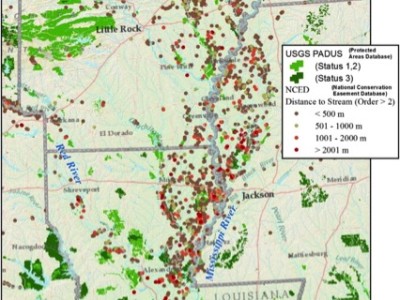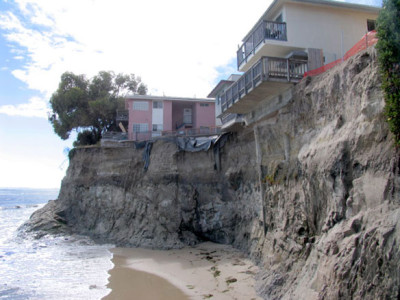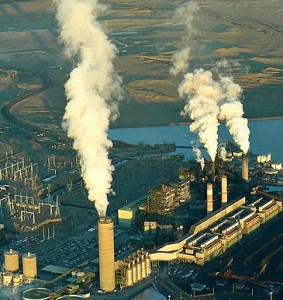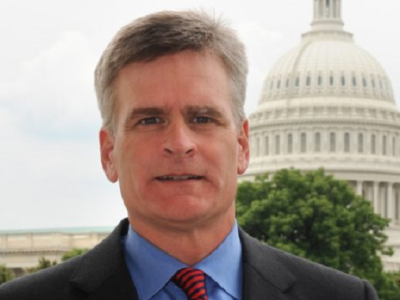Regulatory Policy
Tragedy of the Commons–California Drought-Style
State Farmers Planting New Almond Orchards Despite Critical Water Shortages
Traveling through California’s drought-striken San Joaquin Valley repeatedly over the past year, I’ve been surprised and disheartened to see that Valley farmers continue to convert their agricultural fields to newly-planted almond orchards. (My anecdotal observations have been confirmed by various recent press accounts.) This development is a striking, current example of Garrett Hardin’s Tragedy of …
Continue reading “Tragedy of the Commons–California Drought-Style”
CONTINUE READINGCould a Riparian Conservation Network increase the ecological resilience of public lands?
A new article suggests river corridors could leverage existing policies to build habitat connectivity
As we try to protect biological diversity for the future, a perpetual challenge is ensuring that the strategies we adopt today will continue to work in the face of changing conditions. How can we design conservation approaches that will be resilient in the face of environmental challenges that will only become more severe in coming years? …
CONTINUE READINGMichigan v. EPA: Policymaking in the Guise of Statutory Interpretation
In Michigan v. EPA, the majority followed its own policy views, not those in the statute.
The majority opinion by Justice Scalia has gotten most of the attention. Most notably, he wrote that “[o]ne would not say that it is even rational, never mind “appropriate”, to impose billions of dollars in economic costs for a few dollars in health or environmental benefits.” Indeed, “[n]o regulation is ‘appropriate’ if it does significantly …
Continue reading “Michigan v. EPA: Policymaking in the Guise of Statutory Interpretation”
CONTINUE READINGSaving California’s Beaches
New expert report offers recommendations for shoreline armoring management
As California’s beach goers and residents well know, erosion and climate change are already impacting the California coastline. Eighty percent of California’s coast is actively eroding, and the latest science projects that sea levels may rise up to 5 additional feet along much of the coast by the end of this century. Higher sea levels …
Continue reading “Saving California’s Beaches”
CONTINUE READINGInterpreting Michigan v. EPA
The opinion seems likely to have very limited repercussions.
In bringing the mercury rule to the Supreme Court, industry was hoping for a ruling that EPA had to balance costs and benefits (and could only include benefits relating to mercury). What they got was far less than that. Here, I’d like to address some key questions about the opinion. 1. When does EPA have …
Continue reading “Interpreting Michigan v. EPA”
CONTINUE READINGMercury Rising: The Court Reverses EPA’s Regulation
This was not a great decision for EPA, but it could have been much worse.
The Court has just now decided the Michigan case, involving EPA’s mercury regulation. As Ann Carlson explained in an earlier post, a lot was at stake in the case. The Court ruled 5-4 against EPA. This passage seems to be key to the Court’s reasoning: One would not say that it is even rational, never mind …
Continue reading “Mercury Rising: The Court Reverses EPA’s Regulation”
CONTINUE READINGBreaking News: Supreme Court Rules Federal Agricultural Program a Taking
Justices Uphold California Raisin Growers’ Fifth Amendment Challenge
The United States Supreme Court today ended a David-and-Goliath-style, 10-year legal battle between a pair of California raisin growers and the federal government, declaring that the government triggered a compensable taking of the growers’ private property when a federally-controled agricultural board ordered seizure of a portion of their crop. The Court’s decision can be accessed …
Continue reading “Breaking News: Supreme Court Rules Federal Agricultural Program a Taking”
CONTINUE READINGRepublican Change We Can Believe In
Sen. Bill Cassidy’s Bill Would Ditch Wasteful Ethanol Subsidy
As readers of this page know, I am extremely fair and balanced: I criticize each party if it does something wrong, and praise each if it does something right. If one of those parties happens to do wrong things close to all the time, well, that’s not my fault. But let us now praise a …
Continue reading “Republican Change We Can Believe In”
CONTINUE READINGCalifornia Supreme Court Upholds Affordable Housing Ordinance
Unanimous Court Rejects Developers’ Takings Challenge to San Jose’s Inclusionary Housing Measure
The California Supreme Court, in a unanimous decision issued today, rejected state developers’ efforts to nullify the City of San Jose’s affordable housing ordinance. That decision, California Building Industry Association v. City of San Jose, is critically important for both state land use policy and for constitutional principles governing private property rights and the proper scope …
Continue reading “California Supreme Court Upholds Affordable Housing Ordinance”
CONTINUE READINGFlame Retardants, Furniture, and Polar Bears
One woman’s search for a toxics-free couch in California
A year and a half ago, I found myself in a position that has caused so many people to rethink the world around them: impending parenthood. One of the many changes I decided to make in advance of welcoming our little bundle of joy was to procure a couch without flame retardants. Flame retardants have …
Continue reading “Flame Retardants, Furniture, and Polar Bears”
CONTINUE READING












